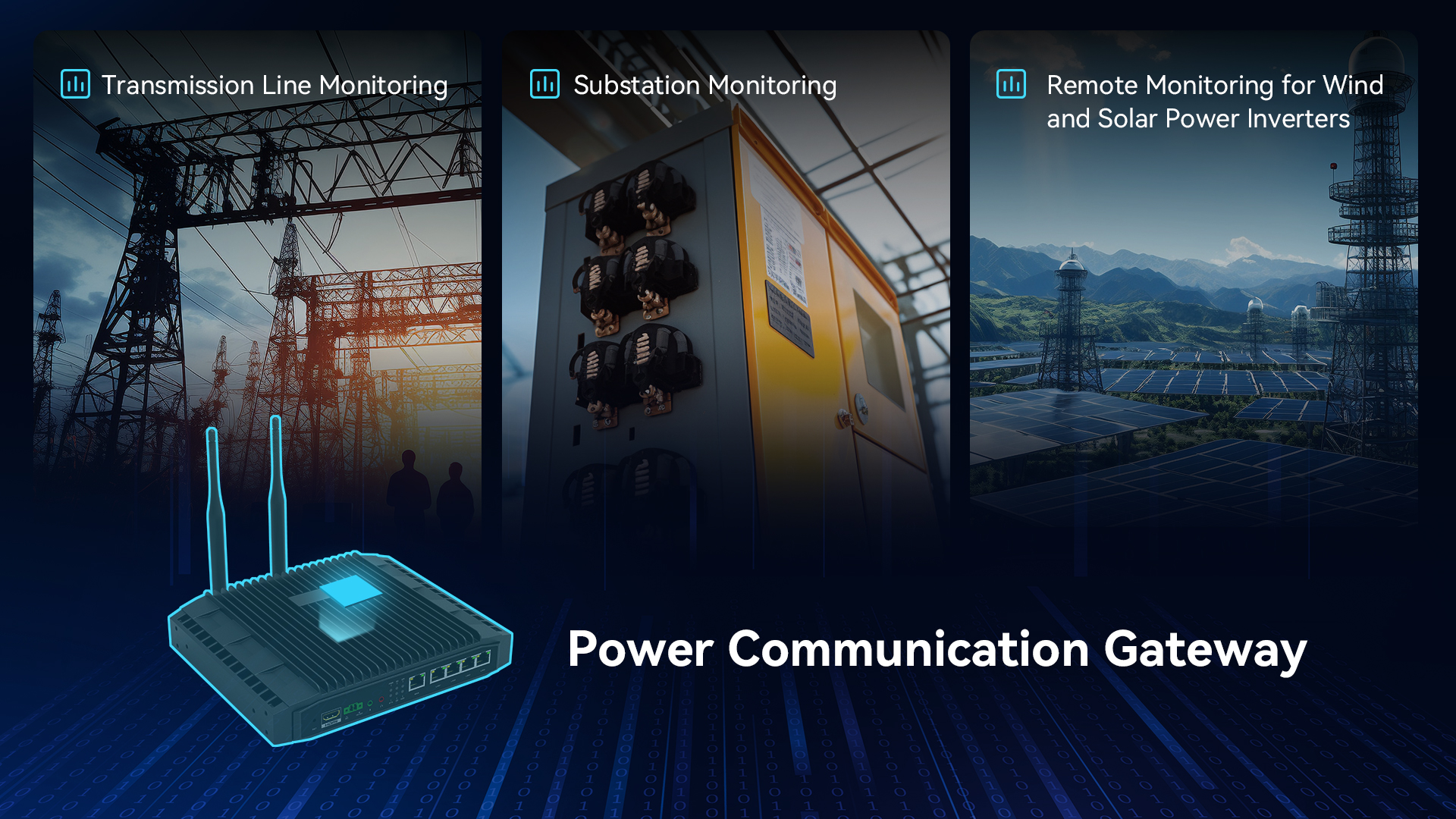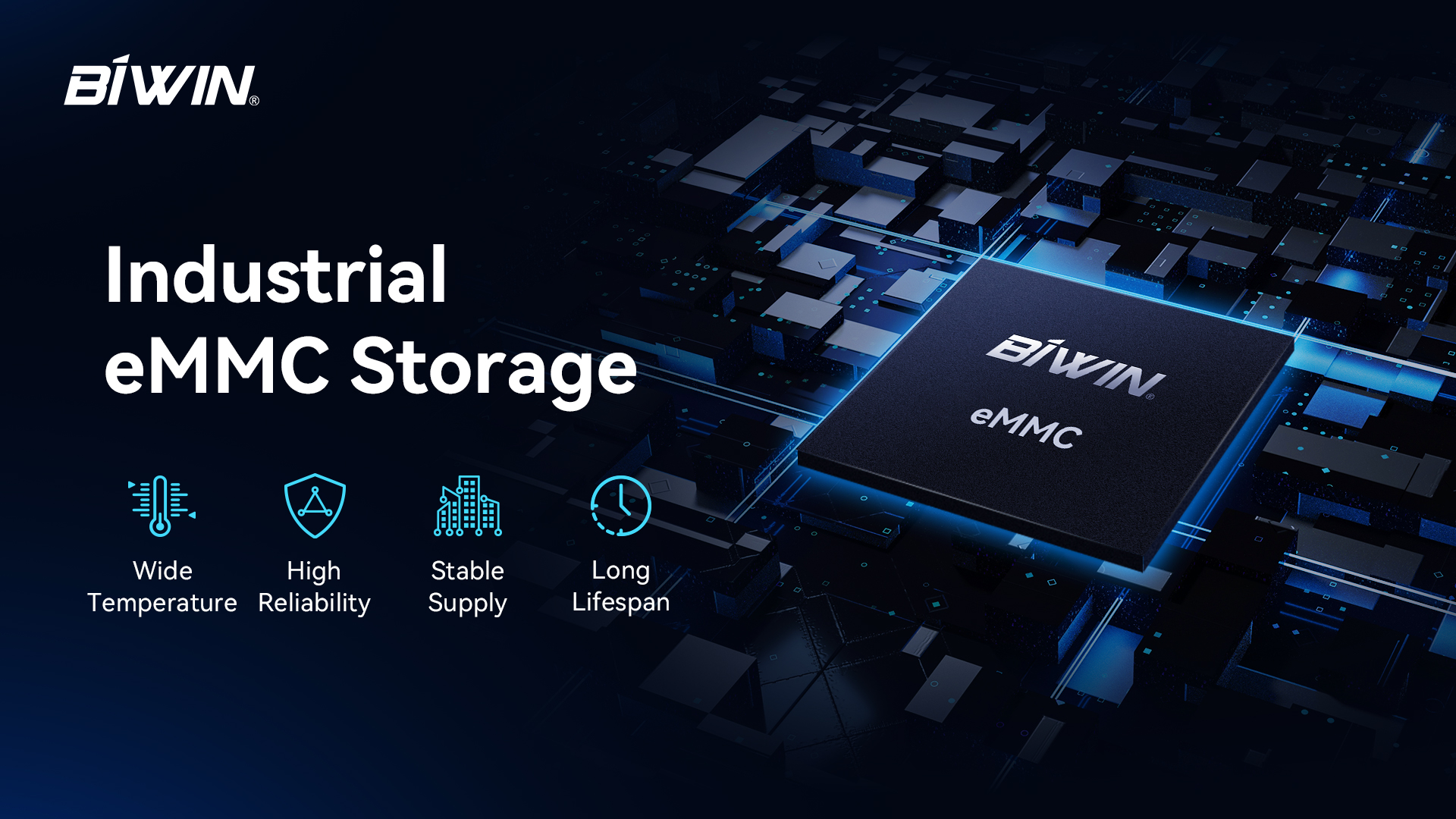In the digital era, smart power devices are becoming more widespread. Among them, the power monitoring gateway, as a core link in the modern power system, ensures real-time monitoring of the power supply system, ensuring stability and optimized scheduling by collecting, transmitting, and analyzing data.

As the data custodian in the power gateway, the storage device’s quality profoundly affects power monitoring system performance and overall power system operation.
What challenges does the power industry face in data storage? How should power enterprises choose reliable storage devices?
Challenge One: Ensures Stable Power Supply with Reliable Data Storage
High Quality, Low Failure: The power industry imposes strict requirements on equipment quality as any malfunction can lead to high maintenance costs and may even necessitate regional power outages for repairs, disrupting normal life and production. Storage products must exhibit high quality to minimize the risk of failures.
Stability and Reliability, 24/7 Power Supply: A continuous, uninterrupted power supply is crucial for residential living or industrial production. Therefore, the power industry demands storage solutions that can maintain stability around the clock, 7 days a week.
Long Lifespan: Products in the power industry have an extended usage lifespan, typically starting from five years and, in some cases, requiring a lifespan of 8 to 10 years or more. Correspondingly, storage solutions need to meet stringent longevity standards.
Stable Supply Demand: To ensure product consistency, the power industry places high demands on the stable supply capability of storage manufacturers. This, in turn, sets elevated standards for the research and development and manufacturing capacity of storage providers.
Challenge Two: How to Efficiently Improve Production Scheduling of Managing Large and Diverse Power Data?
Fast Data Transfer Speed and High Accuracy: Power monitoring data is extensive, encompassing information on power loads, supply details, and the operation of smart meters, with stringent quality requirements. To ensure the timely and accurate transmission of power monitoring data and its effective utilization in decision-making mechanisms, the power gateway needs efficient capabilities for data collection, scheduling, and transmission, preventing issues like partial data loss or confusion.
Multi-threaded Management, Low Latency: The power industry involves complex business processes spanning multiple specialized domains and departments. With an increasing volume of data transfers within the organization and across different regions, departments such as marketing, scheduling, equipment, and customer service may require immediate access to relevant data. Therefore, the storage device must possess robust multi-task management and high-performance capabilities to avoid performance issues arising from simultaneous multi-threaded access.
Data Load Imbalance Resulted from Peak and Off-Peak Differences: Considering the variations in power demand during peak and off-peak periods, the storage device's performance needs to remain consistently stable. This ensures orderly data storage operations at any given time, addressing the challenges posed by the uneven distribution of data loads.
Challenge Three: How to Ensure Security in the Electric Power Industry that is Vital to National Welfare?
Data Security: As a critical element in production, the security protection of power data is crucial for the robust operation of the power grid business.
According to the first-quarter Information Operation and Network Security Assurance report released by State Grid Fujian Electronic Power Co., Ltd., the company monitored and thwarted over 560,000 network attacks, blocking 6,341 high-risk attack source addresses.
Hence, storage devices must implement data encryption technology to enhance data security measures, rigorously preventing the leakage of sensitive data. This ensures the security and integrity of power data.
Challenge Four: How to Handle Extreme Weather in Outdoors?
Complex and Unpredictable Environment: In actual operations, equipment in power monitoring systems may encounter a variety of complex and unpredictable environments, including extreme temperature changes and unexpected power outages. Therefore, storage devices must possess the capability to operate outdoors, ensuring reliable performance in challenging conditions such as extreme temperatures and adverse weather.
BIWIN Storage Solution for the Electric Power Industry
Industrial eMMC Embedded Storage

Outstanding Performance, Long-Term Intensive Read/ Write Support: BIWIN’s industrial eMMC 5.1 integrates high-performance flash memory and controllers, boasting a high original lifespan of the flash memory with Mean Time Between Failures (MTBF) exceeding 3 million hours. It provides the power industry with an exceptionally high-performance and reliable storage solution for long-duration intensive read and write operations.
Excellent Quality, Stable Supply: Thanks to the integrated approach of research, development, packaging and testing, BIWIN possesses advanced capabilities in R&D and IC package, testing, and manufacturing of memory, ensuring premium quality and a Defect Parts Per Million (DPPM) less than 100. With the advantages of mass production, BIWIN can ensure a long-term stable supply.
Self-developed Firmware and Advanced Testing Ensure High Reliability: BIWIN’s industrial eMMC incorporates intelligent flash management, handling interface protocols, data storage and retrieval, Error Correcting Code (ECC) algorithms, defect handling, diagnosis, and power management. The self-development firmware includes features such as wear leveling management, garbage collection, and bad block management. Leveraging the company’s proprietary testing algorithms and advanced testing equipment, the product has successfully passed rigorous reliability and aging tests, establishing itself as a reliable and durable solution.
Multiple Security Protections, Compatible with Mainstream Platforms: BIWIN’s industrial eMMC incorporates features such as Discard, Boot partition, secure erase, and Trim, enhancing the security of data storage.
Small Size, Low Power Consumption, Works Well in Wide Temperature: It can operate in a wide temperature range from -40 °C to 85 °C. With dimensions of only 11.5x13x1.1 mm, the product is suitable for industrial embedded environments with limited space. Dynamic power management technology gives the product low power consumption characteristics, reducing operational costs and supporting enterprises in achieving green and sustainable development.


